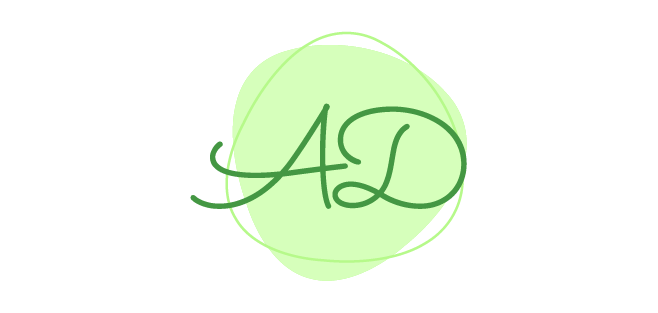
ADHD in High-Functioning Adults: The Hidden Struggle Behind Success
When we hear ‘ADHD’, we usually visualise restless kids who struggle to remain seated or focus in school. But ADHD doesn’t go away with age; it changes. Many adults today have undiagnosed ADHD, particularly those who seem successful on the surface. Some of these are the high-achieving professionals, entrepreneurs, artists, and care-providers who do it all, sometimes at a high inner cost.
They get things done on time. They manage teams. They have a social life. But behind the scenes? Anxiety, chaos, and exhaustion. This is what high-functioning ADHD, a disorder that masquerades as success, is like. And while some of them have coping strategies that work for them, those who don’t, it can quietly chip away at their mental health.
What is High-Functioning ADHD?
High-functioning ADHD describes adults with ADHD who appear to be doing well in life, perhaps even succeeding at work, to the point that they hide from themselves and others the symptoms of ADHD. People tend to praise their productivity, multitasking, and energy levels, even though they struggle to keep it together. Often, this involves battling ADHD and inconsistent focus, where mental energy swings between extremes, laser focus one moment and total distraction the next.
ADHD is on a continuum. On one end, symptoms may be in your face, disorganisation, impulsivity, and hyperactivity. On the other hand, symptoms are camouflaged by coping mechanisms, perfectionism, or sheer effort. High-functioning adults tend to be on this more subdued end of the continuum, where they’re less in evidence but no less afflicted.
These adults might be perpetually fatigued, running late to meetings, forgetful, or swamped by minor tasks. This disparity between external perception and internal reality drives the internal battle with ADHD and speaks directly to attention issues in adults with ADHD.
The Secret Signs of ADHD in Accomplished Adults
Because high-performing adults don’t measure up to the stereotypical type, their symptoms go unnoticed. Below are some adult ADHD signs that could go undetected:
- Chronic procrastination covered up by last-minute frenzy
- Overcommitting, then crashing and burning
- Struggling to complete tasks without an impending deadline
- Restlessness disguised as ambition
- Forgetting appointments or losing things that are important
- Mood swings or emotional reactivity
- Feeling bogged down by routine decisions
Such individuals can be highly capable but often live in a state of perpetual stress or urgency. Over time, it can result in burnout and ADHD proving a deadly combination, especially when it comes to focus and ADHD.
Why Diagnosis is Often Missed or Delayed
In many adults, particularly women, ADHD remains undiagnosed until much later in life. Why?
Because they’ve learned to get around it. High-functioning adults may use productivity tricks, overprepare, or depend on caffeine or adrenaline.
Cultural expectations are also at play. Women, for example, are usually socialised to be organised and caring, qualities that can conceal their symptoms or lead them to be labelled anxious or emotional rather than being tested for ADHD.
By the time a diagnosis is considered, many are already dealing with the emotional aftermath: self-doubt, chronic overwhelm, anxiety, or depression. The result? Years of suffering in silence, often unaware that the root of their challenges lies in how ADHD brains focus.
The Internal Cost of External Success
One of the most painful aspects of high-functioning ADHD is the disconnect between how someone is perceived and how they feel inside. They may hear praise, “You’re so put-together!” while secretly battling exhaustion and self-criticism.
This leads to what experts call internalised failure. They may think, “If I’m doing well, why does life feel so hard?” This question can fester into shame, imposter syndrome, or even chronic burnout.
The internal struggle with ADHD isn’t about a lack of drive or intelligence. It’s about managing a brain that operates differently in a world designed for neurotypical patterns. Understanding focus and ADHD as deeply intertwined challenges can be life-changing.
Moving Forward - Diagnosis, Coaching & Management
The good news? Awareness is everything. After they’re diagnosed, adults can begin shaping their lives around how their brains really operate, instead of trying to shoehorn themselves into traditional models.
A key part of this process is ADHD coaching for adults. In contrast to therapy, which tends to mine the past, ADHD coaching is solution-focused. It works to establish systems, routines, and attitudes that complement, rather than combat, ADHD tendencies.
An ADHD coach may assist adults with:
- Recognise and stop patterns of burnout
- Establish structure without rigidity
- Enhance time management and task initiation
- Establish self-trust and emotional resiliency
- Implement personalised ADHD focus strategies
In addition to coaching, many adults also seek help through medication, therapy, support groups, or mindfulness-based practices. The aim isn’t to “cure” ADHD, it’s to know it and lead with it.
Conclusion
High-functioning adults with ADHD often live two lives: the one others see and the one they feel. But it doesn’t have to stay that way. Recognition is the first step toward relief.
If you’ve ever wondered why things feel harder than they should, why rest feels elusive, and self-doubt is constant, you’re not alone. Your story matters. And support is not only available, it’s transformative.
By awareness, diagnosis, and adult ADHD coaching, you can recover your energy, respect your pace, and build a life that fits. Not in spite of your ADHD, but because you finally get it.
